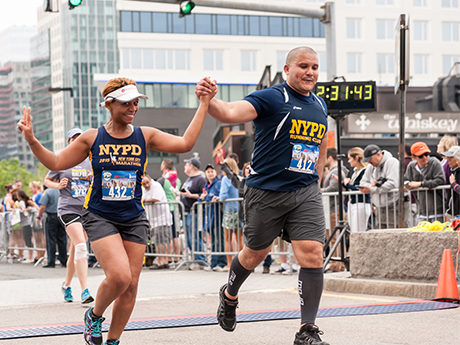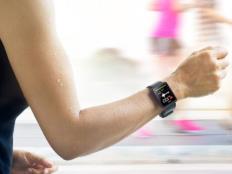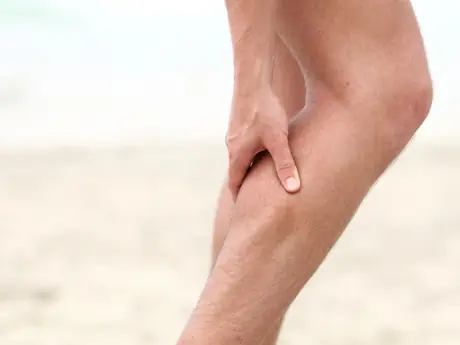Refuel
1 of 12
The first thing you should do is eat and drink slowly. If it was a hot race, you will have a strong desire to chug a gallon of water and avoid food. If the race was cold, you might feel the opposite. Either way, you need to drink water, and do it slowly. For food, take in high glycemic, easily digestible foods. Aim for a 4:1 carb to protein ratio and avoid fats, as they slow the digestion of the other macros.
Find:
Your Next RaceClean Up and Get Dry
2 of 12
After running a marathon in the cold rain, the best thing you can do is get into dry clothes to stop the shivering. Within 60 minutes of finishing your race, take at least a baby wipe shower. If you have time for a real shower, alternate between running cold water and hot water on your legs every minute, called a contrast shower.
Find:
Your Next RaceCoffee Power Nap
3 of 12
Remember these from college? Take in a moderate amount of caffeine (80 to 120 miligrams) from coffee, then take a quick cat nap. This is an effective way to allow your body to rest and wake up refreshed. Simplified, coffee blocks adenosine, a molecule that causes tiredness when in excess, from receptors in the brain. Drinking caffeine will allow you wake up alert after a 20 to 45 minute nap. Don't sleep any longer than 45 minutes or you might get severe sleep inertia.
Find:
Your Next RaceKeep Moving
4 of 12
The worst thing you could do for your body is binge watch Netflix for the next 5 hours after a marathon. Take a short, brisk walk around the city you are visiting or your neighborhood.
Find:
Your Next RaceRecap
5 of 12
It is time to get the race out of your head and onto paper. If you don't already blog, you should write down how the race went, including preparation, nutrition, weather, pacing and recovery. This will help you prepare for other races as you evolve your running goals and strategies.
Find:
Your Next RaceAvoid Pills
6 of 12
As tempting as it may be to pop some anti-inflammatory pills, you shouldn't take medicine unless advised by a doctor. Our bodies are remarkable machines and inflammation is a response to injury to help heal the body where needed. Taking pills too soon can hinder the recovery process or even hurt it since ibuprofen can be rough on the digestive system and kidneys.
Find:
Your Next RaceMassage
7 of 12
The best reason to spoil yourself. Hopefully, you got regular massages (once a month) during your training. After the race, getting a Swedish (light pressure) or sports (stretching) massage can help keep the body on the right path to recovery. Avoid deep tissue massages as they are meant to break up muscle (and your muscle is still healing).
Find:
Your Next RaceSleep Extra
8 of 12
Add 60 minutes a night for the week after the race. A recent study from Flinders University in Adelaide, Australia, published in the journal Sports Med, suggested that 9 to 10 hours of sleep is required for athletes following a grueling race.
Find:
Your Next RaceLight Jogging
9 of 12
It is OK to lace up your sneakers, but it is not OK to do all out sprints on the track. Incorporate two days of light jogging 2 to 3 minutes slower than your marathon pace and limit it to 5 miles or less. As Jason Fitzgerald, USA Track & Field certified coach and creator of Strength Running, says, your easy runs should be the three Cs: comfortable, controlled and conversational.
Find:
Your Next RaceReverse Taper
10 of 12
To recover from a marathon, follow your tapering plan in reverse and slowly build the miles back up. Start small and focus on short distances with some strides to build in speed. Within 4 to 6 weeks, you can return to your normal training schedule.
Find:
Your Next RaceCross Train
11 of 12
As eager as you may be to start running on a normal schedule, take the time to cross train. Like most exercises, running works a select set of muscle groups and neglects others. Use this time to work in the transverse plane, rotational movement and to correct imbalances.
Find:
Your Next RaceGet ACTIVE on the Go


Couch to 5K®
The best way to get new runners off the couch and across the finish line of their first 5K.
Available for iOS | Android






Discuss This Article